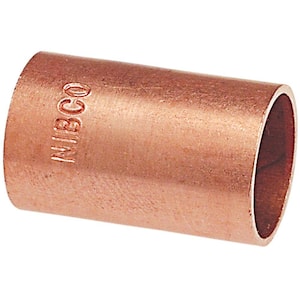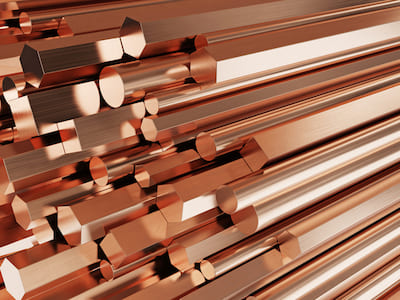The Ultimate Overview to Sustainable Coping With Eco-Friendly Copper Products
The Ultimate Overview to Sustainable Coping With Eco-Friendly Copper Products
Blog Article
Exploring the Diverse Applications of Copper Products in Modern Industries
From improving the performance of electrical systems to playing an essential duty in sustainable power technologies, the flexibility of copper is evident. As industries significantly focus on development and sustainability, the diverse applications of copper necessitate a closer exam, especially regarding their possible impact on future environmental techniques and technical innovations.
Electric Applications of Copper
Copper is a crucial material in the electric industry, representing roughly 60% of the total need for non-ferrous metals globally - Copper Products. Its premium electric conductivity, which is virtually two times that of aluminum, makes it the favored selection for a large range of electric applications. From electrical wiring systems in commercial and property buildings to high-voltage power transmission lines, copper makes sure performance and integrity in electricity distribution
In addition to wiring, copper is essential to the manufacturing of electrical elements such as transformers, electric motors, and generators. These parts utilize copper's thermal conductivity and malleability, important for heat dissipation and reliable performance. Copper's resistance to rust boosts the lifespan and resilience of electrical systems, making it an affordable service in the long term.
The growth of renewable resource resources, such as solar and wind power, has actually further enhanced the demand for copper in electrical applications. As industries shift in the direction of sustainable power options, copper's role ends up being even extra critical. In general, the convenience and efficiency qualities of copper solidify its condition as a cornerstone material within the electric field, driving advancement and effectiveness throughout different applications.
Pipes and Piping Solutions
In modern-day plumbing systems, the option of materials considerably affects both performance and long life. Copper has arised as a favored alternative because of its one-of-a-kind homes, consisting of deterioration resistance and antimicrobial qualities. These characteristics make certain that copper piping continues to be sturdy and safe for transporting potable water, an important factor to consider in domestic and commercial applications.
One of the vital benefits of copper in pipes is its capability to endure high temperature levels and stress, making it appropriate for a range of applications, from warm water systems to home heating and cooling down networks. Furthermore, copper's versatility permits simpler installment in complex piping layouts, minimizing the danger of failings and leakages.
Another noteworthy advantage is copper's long lifespan, commonly exceeding half a century with proper upkeep. This longevity not just decreases substitute prices but also adds to sustainable techniques by reducing waste. Furthermore, copper's recyclability lines up with modern-day ecological requirements, advertising a round economic climate within the pipes sector.
Copper in Renewable Energy
The versatility of copper extends beyond plumbing applications, playing a Check Out Your URL vital role in the sustainable power sector. In solar panels, copper is made use of in photovoltaic cells and electrical wiring, facilitating effective power conversion and transmission.

In addition, as the worldwide need for electric cars (EVs) boosts, copper's function in battery systems and charging framework comes to be a lot more significant. The product's ability to carry out electrical energy effectively is important to the performance of EV batteries, enhancing array and charging rate.
Copper's Function in Electronic devices
Electronics manufacturing relies heavily on copper's phenomenal homes, particularly its high electric conductivity and thermal effectiveness. These attributes make copper an optimal selection for a wide variety of digital elements, consisting of connectors, motherboard, and electrical wiring. The steel's capacity to effectively transmit electrical signals makes sure very little power loss, which is critical in high-performance electronic tools.
Additionally, copper's thermal conductivity plays a substantial function in warm dissipation, shielding sensitive components from overheating. This is particularly essential in modern-day electronic devices, where portable layouts result in increased warmth generation. Copper is likewise favored for its malleability and ductility, enabling it to be conveniently formed into intricate you can try this out styles that fulfill the needs of advanced electronic applications.
With the surge of consumer electronic devices, telecoms, and electrical cars, the demand for copper in the electronic devices sector proceeds to grow. Therefore, copper remains a cornerstone product in the ever-expanding field of electronics.
Ingenious Uses in Production

One noteworthy application is in additive production, where copper-based materials are utilized in 3D printing processes. This enables the creation of light-weight parts and complicated geometries, especially in the aerospace and automotive fields. Additionally, copper's thermal conductivity makes it a suitable option for heat exchangers, boosting efficiency in commercial cooling systems.
Moreover, the surge of smart production has actually seen the unification of copper in IoT devices, where its conductive capabilities support innovative picking up modern technologies. In the world of renewable resource, copper is crucial in find here the manufacturing of photovoltaic panels and wind turbines, assisting in a lot more effective power conversion and circulation.
As markets pursue sustainability and technology, copper's flexibility and efficiency remain to place it as an essential product, driving developments in manufacturing and adding to the advancement of smarter, more reliable products.
Verdict
The integral function of copper in renewable energy and its important function in electronics underscore its value in progressing sustainable practices. Collectively, these applications highlight copper's important contribution to technological development and commercial efficiency in contemporary society.
From boosting the effectiveness of electric systems to playing an essential function in renewable power innovations, the flexibility of copper is evident. As markets progressively focus on technology and sustainability, the varied applications of copper require a closer examination, particularly concerning their potential impact on future ecological practices and technical innovations.
The development of renewable power resources, such as solar and wind power, has actually further enhanced the need for copper in electric applications. Overall, the versatility and efficiency attributes of copper strengthen its status as a keystone material within the electrical field, driving advancement and performance across numerous applications.
The convenience of copper expands past plumbing applications, playing an essential role in the eco-friendly power sector.
Report this page